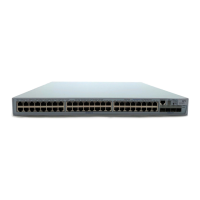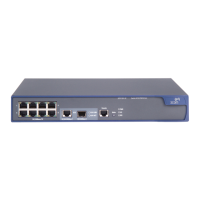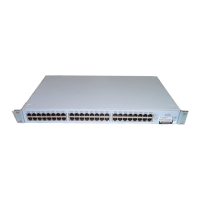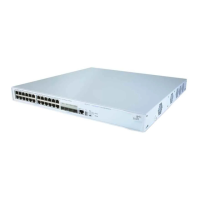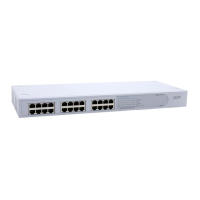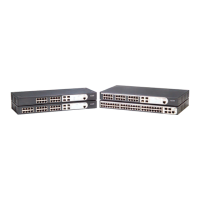1146 CHAPTER 90: RRPP CONFIGURATION
edge node are up again. A temporary loop may arise in the data VLAN in this
period. As a result, broadcast storm occurs.
To prevent temporary loops, non-master nodes block them immediately (and
permits only the packets of the control VLAN) when they find their ports accessing
the ring are up again. The blocked ports are activated only when the nodes ensure
that no loop will be brought forth by these ports.
Broadcast storm suppression mechanism in a multi-homed sub ring in case
of primary ring link failure
As shown in Figure 347, Ring 1 is the primary ring, and Ring 2 and Ring 3 are sub
rings. When two links of the primary ring between the edge node and the
assistant edge node are down, the master nodes of Ring 2 and Ring 3 will open
their respective secondary ports, and thus a loop among B, C, E and F is
generated. As a result, broadcast storm occurs.
In this case, to prevent from generating this loop, the edge node will block the
edge port temporarily. The blocked edge port is activated only when the edge
node ensures that no loop will be brought forth when the edge port is activated.
Protocols and Standards Related standard: RFC 3619.
RRPP Configuration
Task List
Complete the following tasks to configure RRPP
c
CAUTION:
■ It is recommended to configure the primary ring first and then the sub ring
when you configure an RRPP domain. Moreover, a Ring ID cannot be applied to
more than one RRPP ring in one RRPP domain.
■ If a device lies on multiple RRPP rings in an RRPP domain, only one primary ring
exists. The device serves as either an edge node or an assistant edge node on
the sub rings.
■ The total number of rings configured on a device in all RRPP domains should
not be greater than 16.
■ Modification of node mode, port role and ring level of an RRPP ring is
prohibited after configuration. If needed, you must first delete the existing
configuration.
■ The secondary port on the master node and a port on a sub ring node must
not be configured as a multi-domain intersection common port, and the two
ports that access the same node to the same RRPP ring must not be configured
as multi-domain intersection common ports at the same time.
Task Description
“Configuring Master Node” on page 1147 Required
“Configuring Transit Node” on page 1148 Optional
“Configuring Edge Node” on page 1149 Optional
“Configuring Assistant Edge Node” on page 1151 Optional
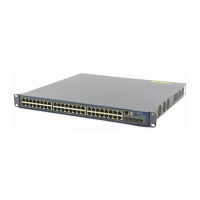
